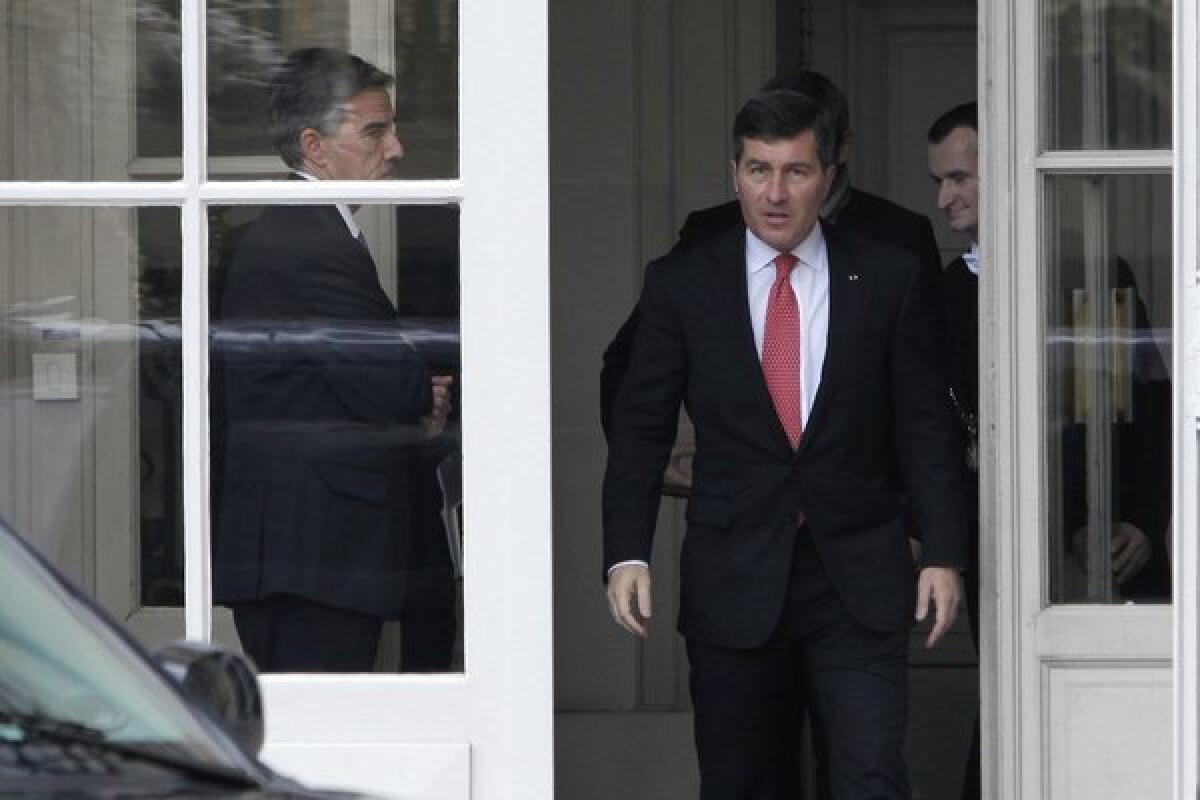NSA spying: French find another reason to dislike Americans

- Share via
Uh oh, the French are fried because the NSA spied on them. And you know what that means: It means, well, uh, it means … OK, it means nothing, really.
This kerfuffle was kicked off by an article in Le Monde, which The Time’s Henry Chu reported on:
Based on documents leaked by former NSA contractor Edward Snowden, Le Monde reported that the agency’s intelligence dragnet collected 70.3 million pieces of data on French phone communications in a single month beginning in December of last year. Calls to some telephone numbers triggered recordings of conversations, and text messages containing certain keywords were also automatically picked up, the French newspaper reported.
Le Monde said it appeared that the NSA collected data on “both people suspected of association with terrorist activities as well as people targeted simply because they belong to the worlds of business, politics or French state administration.”
The French government was shocked! shocked! to hear that this kind of thing going on, and it took strong action: “French Foreign Minister Laurent Fabius said that he had summoned U.S. Ambassador Charles H. Rivkin for an explanation.”
Oooh, an explanation. Wonder if Rivkin got to have a nice cup of café au lait and some of those delicious pastries while he told his French counterpart that he had no idea what he was talking about?
But really, why should France feel abused? After all, it’s recently come out that the NSA had tapped into an email server used by ex-Mexican President Felipe Calderon and his Cabinet, and that the spy agency had also loosed its electronic tentacles on Germany and Brazil.
In other words, the more shocking news would’ve been that we weren’t spying on the French. In this brave new world of electronic surveillance, you have to be a real nobody to be ignored.
Oh, yes, and then there’s this little ironic tidbit: “Earlier this year, Le Monde alleged that France’s own intelligence authorities had developed the country’s own massive electronic surveillance system, with the ability to monitor communications within France and between users in France and other countries, including phone calls, emails, text messages and even posts on social networks such as Facebook and Twitter.”
Mon dieu! In other words, the French government doesn’t actually object to spying on French citizens. It objects to others spying on French citizens.
Then again, maybe that sounds more logical when you say it in French.
Clearly, though, the genie is out of the computer bottle. In today’s interconnected world, citizens’ rights to privacy are being toppled faster than that rock in Utah those Boy Scout yahoos pushed over.
In any country, in any language, the new rule is this: You have no privacy. If the government wants to — and our government certainly seems to want to — it can and will vacuum up every detail of your electronic life. And not just governments — companies too. Google, Facebook, Amazon: They want you, and they aren’t letting go.
So welcome to the party, Parisians. Liberté, égalité, fraternité indeed!
Hope you have nothing to hide.
ALSO:
Camels: 100 years and still killing
Heartburn’s a symptom, not a disease
Follow Paul Whitefield on Twitter @PaulWhitefield1 and Google +
A cure for the common opinion
Get thought-provoking perspectives with our weekly newsletter.
You may occasionally receive promotional content from the Los Angeles Times.







